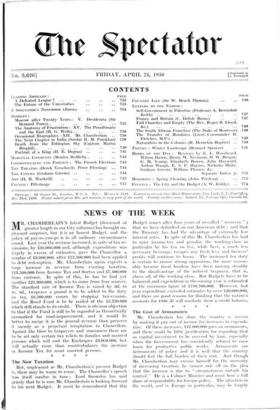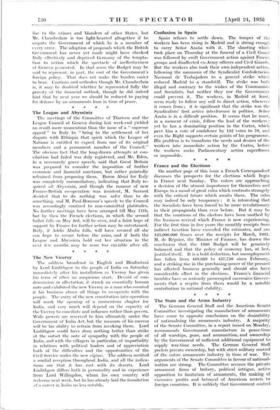The Cost of Armaments Mr. Chamberlain has done the country
a service by making it pay out of income for increases in expendi- ture. Of these increases, £42,000,000 goes on armaments, and there could be little justification for regarding that as capital investment to be covered by loan, especially. when the Government has consistently refused to raise loans for productive public works. Armaments are instruments of policy and it is well that the country should feel the full burden of their cost. And though Mr. Chamberlain may excuse himself for the necessity of increasing taxation, he cannot ride off on the plea that the increase is due to " circumstances outside his control." He is a Cabinet Minister and must bear a full share of responsibility for foreign policy. The situation in the world, and in Europe in particular, may be largely due to the crimes and blunders of other States, but Mr. Chamberlain is too light-hearted altogether if he acquits the Government of which he is a member of every error. The adoption of proposals which the British Government has never yet made might have checked Italy effectively and deprived Germany of the tempta- tion to action which the spectacle of ineffectiveness at Geneva presented. In that sense the Budget may be said to represent, in part, the cost of the Government's foreign policy. That does not make the burden easier to bear. Cautious and orthodox though Mr. Chamberlain is, it may be doubted whether he represented fully the gravity of the financial outlook, though he did indeed hint that by next year we should be reduced to paying for defence by an armaments loan in time of peace.



















































 Previous page
Previous page